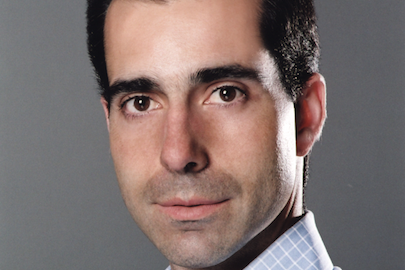
How to punch above your weight in fundraising
April 19, 2017
Expert View: Social innovation as a driver of impactful philanthropy
June 7, 2017With the General Election taking place in the UK this week, the Institute of Fundraising is encouraging charities to engage with their local parliamentary candidates and speaking up for fundraising. In our latest ‘How to’ feature, the IoF’s Mike Smith gives his top tips on how charities across Europe can best get their voices heard by their own MPs and governments.
On 8 June, Britain goes to the polls to decide who will form the next government. The Institute of Fundraising has been working hard ahead of the election writing to the party leaders and producing a new election policy briefing outlining why fundraising is so important and how the next government can help to support those raising money for good causes. We’ve also asked our members to join with us to speak up for charity fundraising by contacting their candidates ahead of election day. A lot of work so far, but we are just getting started.
Immediately after the election we’ll be working to engage the government and politicians from all parties to help the amazing work of charity fundraisers. So how can charity fundraisers across Europe work to ensure our voices are heard by MPs and government? Here are a few pointers to bear in mind:
Be clear about what they can do to help
Even with the most important issue in the world (of which fundraising comes close!), unless you can show what needs to change and what politicians can do about it you are not likely to get much support. As far as possible have clear ‘asks’ and recommendations for action, even if that action is just for the Government to convene a meeting or commissioning a report to decide what to do!
Show why it matters
People become politicians (at least partly) because they want to make a difference in the world. To get them excited about and issue you need to show what the ‘problem’ is and why it matters. For fundraising, it’s important to show how vital fundraising is to donations and charity income, the impact this has on beneficiaries and what would happen to these vital causes if fundraising didn’t exist.
Show why they should care about it
Even if you show that your issue matters, you still need to show why it is so important that it deserves the attention of politicians when they are so busy and there are other vital and competing issues going on. It is important to show why it matters to them and what they want to achieve from their time in office. Understand the issues they are interested in, what motivates them and how fundraising and the work of charities might be important to this.
Have an authentic voice, and authoritative statistics
If you are going to be listened to, it is important that you know your stuff. When it comes to highlighting an issue to busy politicians there is nothing like making sure that the person providing the information has direct experience. If you are a fundraiser, you can speak from your personal experience on the job. Ask your beneficiaries to talk about how important fundraising is and the difference this has made for them. Have examples and case studies that demonstrate in tangible terms why fundraising matters. These should be backed up with statistics that make and strengthen your case, and needless to say these need to be accurate and authoritative.
Build support where it already exists
Even with the right approach, you are unlikely to change a politician’s mind if they fundamentally disagree with you. Although most will support charity fundraising in general, it’s worth making sure that your first approaches and closest engagement is with those politicians who already know and support the sector. They will be more likely to help champion your issue, and will be more effective at persuading their colleagues to potentially also support your work.
Practical stuff – make direct contact, don’t waste time and make sure you follow up
If there is one thing that politicians don’t have a lot of, it’s time. So when you make your approach, whether in writing or in person, always make sure that it is clear and to the point. Make sure that if you are emailing or writing a letter you address it to the person and make it personal – if you don’t make a personal approach, you are unlikely to get a personal response. And finally, always follow up! With busy offices and competing priorities, letters or emails can get lost and actions agreed in meetings can fall by the wayside. So always call the office to follow up on any approach and try to keep in contact about any actions agreed following meetings.
As someone with a deep interest in politics and a passion for making the world a better place, I can’t wait to start engaging again with the Government, MPs and decision makers after the election about how they can do even more to support fundraising. Hopefully the advice above will help colleagues across the UK and Europe to do the same.
About Mike Smith
Mike Smith is the Head of External Affairs at the Institute of Fundraising. He joined the IoF in October 2015 having worked for several years in large and small charities across the sector. His background is in campaigning, communications and public affairs, most recently as joint Head of Public Affairs at Age UK. Prior to his time with Age UK, he spent three years working for Oxfam in both government relations and public campaigning roles.




